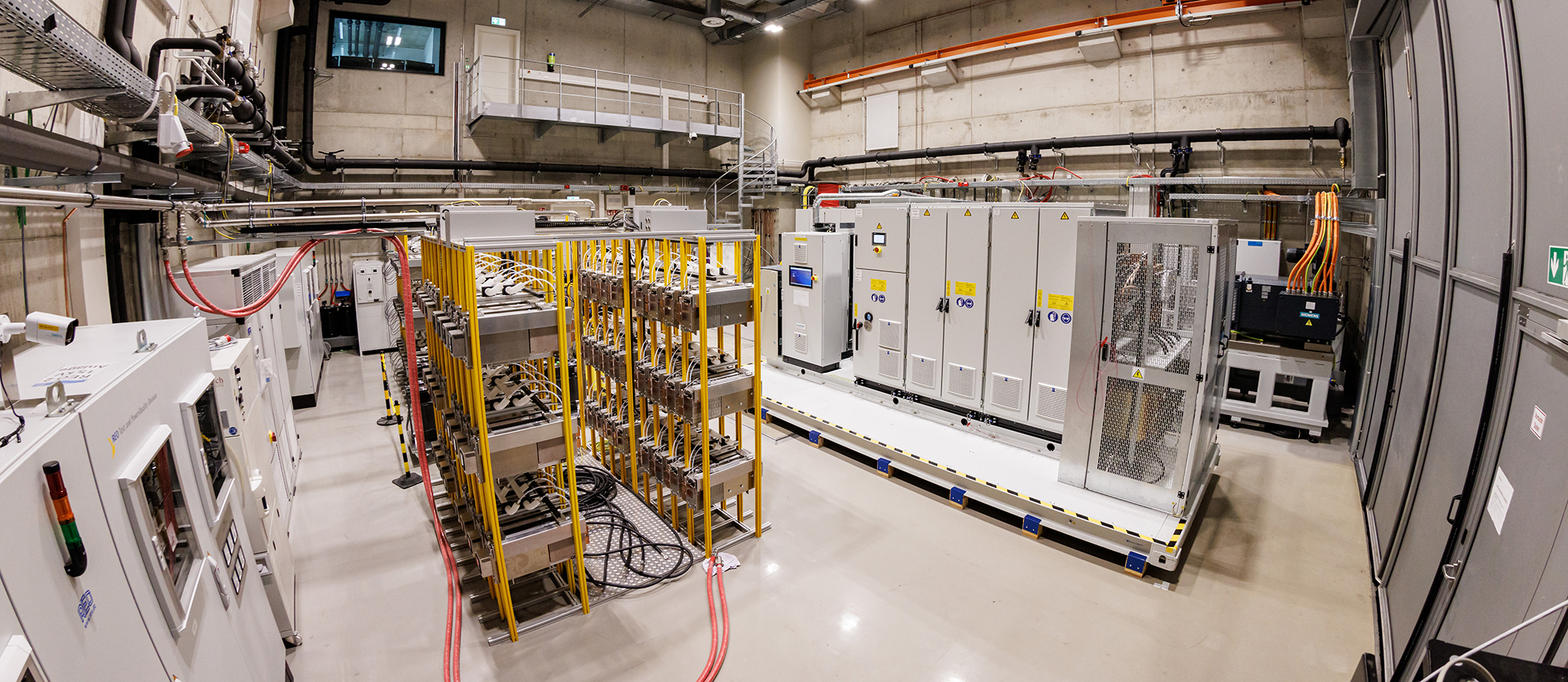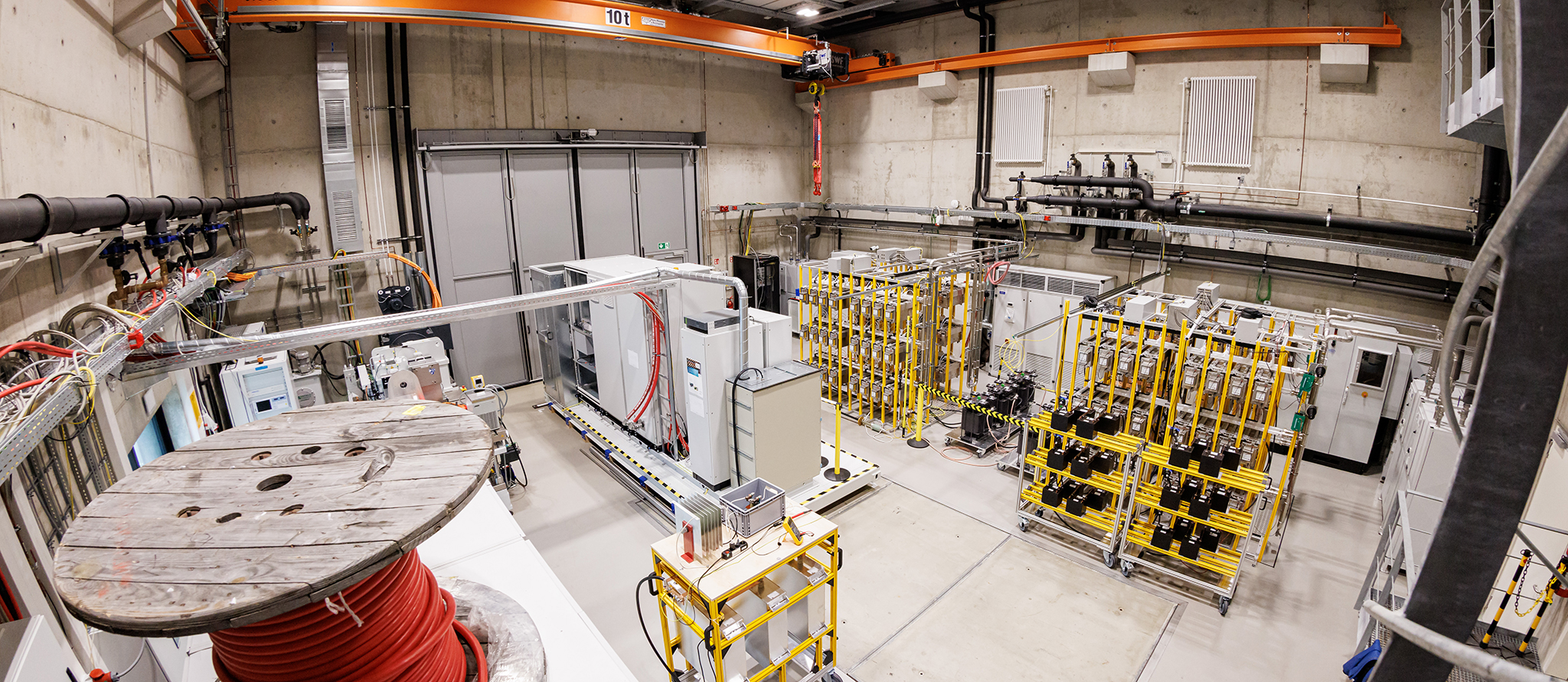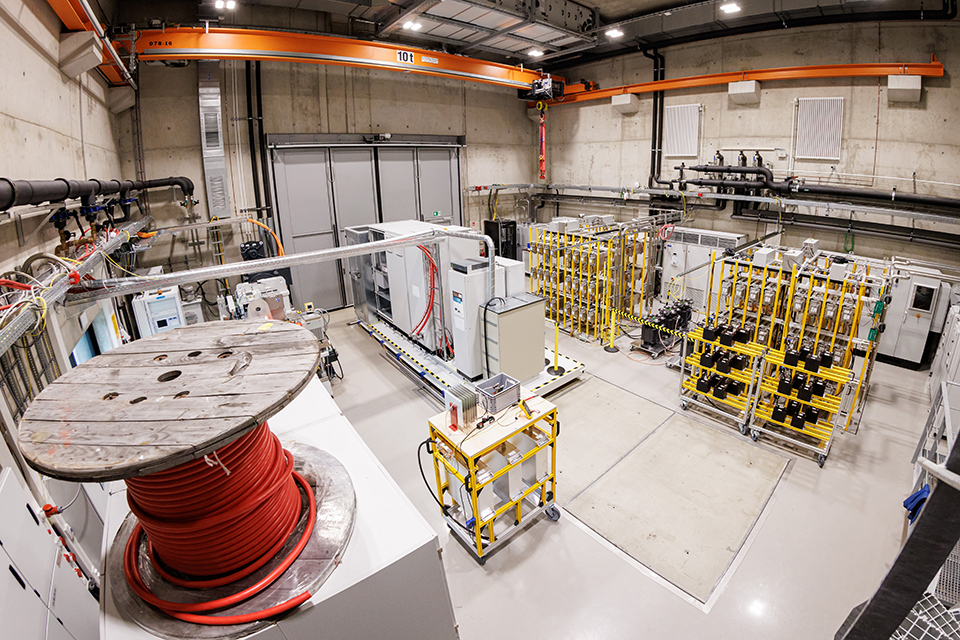To develop holistic solutions for our partners, we combine our expertise in the areas of semiconductors, topologies, control, thermal design and system development.
Our research topics include:
- Test of extraordinary devices under tests at 200 m² medium voltage test bench up to 30 kV and 1.6 MW
- Self-developed and self-constructed 10 MW modular multilevel inverter with flexible control for special test setups with up to 20 kV
- Topology studies and realization of 2-level, 3-level (T-Type, NPC, Sparse) and multilevel inverters for renewable energy, railway and ship applications
- “Honest” Digital Twins: Simulation and verification by measurements
- FPGA control and SoC development: Auto code generation for automated control
- Thermo-electrical semiconductor characterization and modeling: Si, SiC and GaN up to 10 kV with four customized double pulse setups and static characterization
- Direct cooling of power electronic systems: Simulation and measurement of novel mechatronic concepts
With the increasing use of power electronic systems in electrical energy grid applications, multi-level topologies are also becoming more important. These converters make it possible to overcome the specific critical points of high-blocking voltage semiconductors with regard to their static and dynamic properties.
Multi-level systems are therefore the key technology for efficient and cost-effective power electronic systems in high- and medium-voltage applications. They also provide better EMC performance, which allows the reduction of system size and costs. These systems show low grid perturbations and a generally “grid-compatible” behavior.
Based on these specific characteristics, multi-level converters are used in many areas of electrical energy conversion:
The term “multi-level” comprises various converter topologies. Depending on the specific application, different power electronic topologies offer the optimum solution. Today, in the electrical energy grid, the well-known three-level NPC inverters are widely used for small and medium power solar inverters. A new type based on the modular multi-level (MMC/M2C) principle has been introduced into high-power and high-voltage transmission systems (HVDC, SVC). Besides grid-related systems, many other applications can be covered by multi-level converters, for example high-performance drives for industrial, rail or naval systems.
 Fraunhofer Institute for Integrated Systems and Device Technology IISB
Fraunhofer Institute for Integrated Systems and Device Technology IISB


